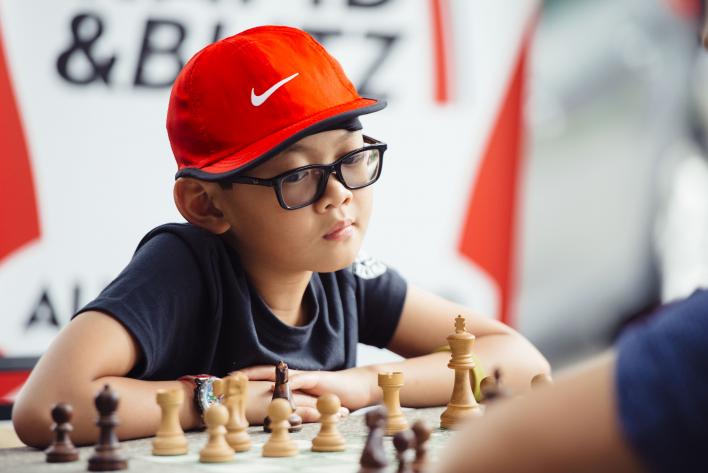
by Paul Schwent, Scholastic Chess Instructor
As an instructor, mentor, father, or mother of an aspiring chess player, playing against your little prodigy can be a great way to measure their skills and progress. While it can also be a lot of fun, it can lead to number of internal struggles as well:
-
How hard should I try?
-
Should I win or allow myself to lose?
-
Should I try to make it a close game or crush them with my superior skill?
These questions are not to be taken lightly. How these early games are handled can have a serious impact in a young player’s development. For example, if you let a young player win you might be giving him a nice confidence boost, but you are also giving him a false sense of their ability and setting them up for greater disappointment later. Crushing the beginner, however, can demoralize them and keep them from coming back to the board with you (or anyone else!)
As a chess instructor and Father of two young chess players, here is my advice:
-
Never let a player win: Allowing a player to win will lead them to believe he is better than they really are. It gives a false sense of achievement that will only hurt them in the long run.
-
Do not play poorly to make it a close game: If your prodigy sees you playing poorly they may pick up your bad habits. It will also hurt your credibility as their coach or mentor. If you want to “even the odds” in your game, simply handicap yourself by starting a piece down or if you are using a clock, giving your opponent more time.
-
Don’t go for the quick kill: Once again, good fundamentals are key. A quick checkmate is not only demoralizing, but it is also was probably only achieved with questionable fundamentals. This is the worst of both worlds as it teaches bad form AND crushes the life out of the player.
-
Treat the game as a learning experience: As soon as the game is over, tell your opponent everything they did well so they will have something to build on. Be excited for their progress. Then, point out one or two mistakes they can learn from.
These tips will not only allow young players to learn but also, in most cases, help them to be excited about their progress and keep their love of the game intact.


